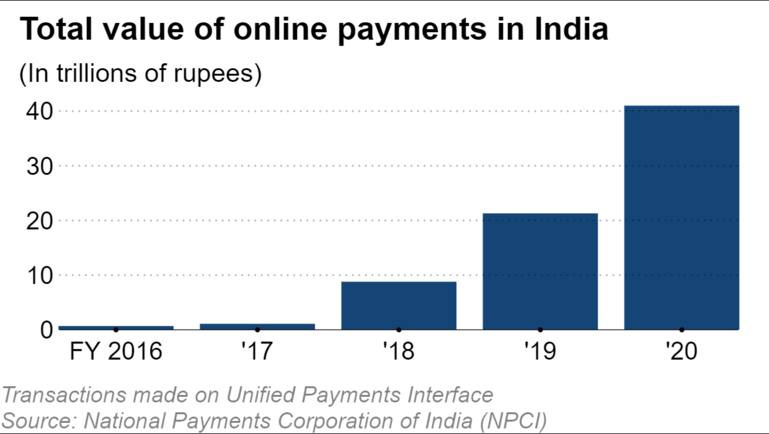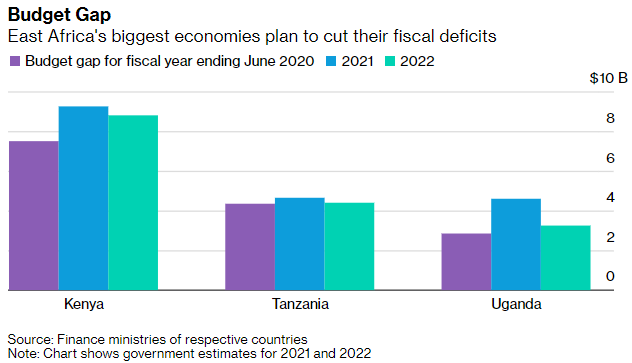Emerging Markets Daily - June 10
India Fintech Unicorns Eye SE Asia, Pakistan Seeks New IMF Package, East Africa Seeks $16B Debt to Boost Economies, Google to Build World's Longest Undersea Cable, China Tempers Climate Change Efforts
The Top 5 Emerging Markets Stories from Global Media - June 10
India's Fintech Unicorns Eye Southeast Asia Expansion
Nikkei Asia
“India's most valuable financial technology startups are entering Southeast Asia, bringing a fresh wave of competition for a slice of the region's young shoppers.”
“‘Most of the Southeast Asian markets are where India was about two and a half years back," Pine Labs CEO Amrish Rau said in an interview. "So I think there lies the opportunity ... where the wave of small-value digital payment transactions is going to become very, very big.’”
“…While most Indian fintech startups are still loss-making, their expansion outside India has been powered by strong investor appetite. Fintech startups accounted for nearly 30% of the valuation of Indian unicorns, Credit Suisse said in a report in February.”
“The new entrants will likely add to the already intense competition for Southeast Asian shoppers. Grab, Gojek and Sea have been investing aggressively in financial services to lock in their large customer bases.” Wataru Suzuki reports
Pakistan Leverages US Military Co-operation to Win IMF Concessions
Financial Times
“America’s withdrawal from Afghanistan had given Imran Khan’s government ‘some space’ to delay unpopular IMF reforms.”
“Islamabad is in talks with the IMF to release the next tranche of funding as part of a $6bn loan programme as Pakistan struggles to tame inflation and recover from the shock of the pandemic.”
“Officials are seeking US support in the form of financial backing from the Washington-based international financial institution in exchange for helping President Joe Biden withdraw all US troops by September 11 and bringing the Taliban to the negotiating table.” Stephanie Findlay reports
East Africa Seeks $16 Billion of Debt to Boost Economic Growth
Bloomberg
“East Africa’s largest economies plan to borrow at least $16 billion to fund an economic revival, while striving to ease their debt burdens after the coronavirus pandemic battered governments’ revenue.”
“Finance ministers in Kenya, Uganda and Tanzania will present their 2021-22 spending plans on Thursday, providing details on funding key projects, including building railways and ports, in the wake of heavy indebtedness. The three governments will contend with a combined budget shortfall of about $16.4 billion in the fiscal year. Kenya, East Africa’s largest economy, faces a gap of $8.8 billion equivalent to 7.7% of gross domestic product, which it plans to fill with external and domestic borrowing.” David Herbling reports
Google to Build World’s Longest Undersea Cable to Connect Latin America and US
Korea Times / Reuters
“Alphabet's Google said on Wednesday it was building an undersea cable that would connect the United States, Brazil, Uruguay and Argentina, to bolster internet connection capacity between these regions.”
“The cable, called Firmina, will be the longest cable in the world, Google said in a blog post, adding that it will run from the East Coast of the United States to Las Toninas, Argentina, with additional landings in Praia Grande, Brazil, and Punta del Este, Uruguay.” Korea Times / Reuters reports
China Tempers Climate Change Efforts After Economic Officials Limit Scope
The Wall Street Journal
“China’s top economic planners have put the brakes on attempts by environmental officials to reduce carbon emissions as driving growth takes priority over meeting climate targets for now, according to people familiar with the matter.”
“Officials at China’s main economic planning agency, the National Development and Reform Commission, have limited the initial scope of a national carbon-trading system, which is set to go into full operation later this month after pilot projects in eight Chinese cities.”
“The economic planning office has also gained the upper hand in negotiations over drafting a detailed road map to fulfill leader Xi Jinping’s pledges to achieve a peak in carbon-dioxide emission before 2030 and net zero emissions by 2060, the people said.” Sha Hua and Keith Zhai report





